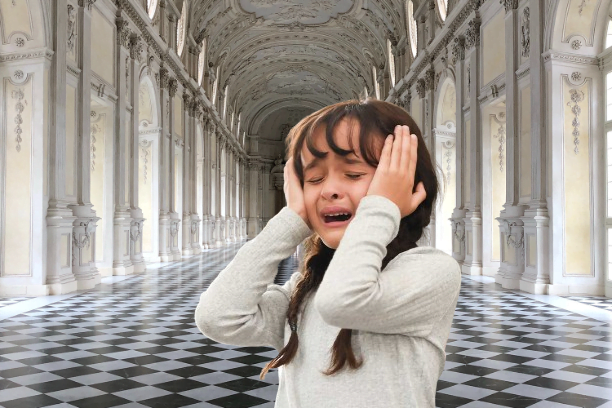Understanding Childhood Schizophrenia
Childhood schizophrenia is a rare yet severe mental disorder that affects how children and teenagers perceive reality. Similar to adult schizophrenia, it involves cognitive, behavioral, and emotional disturbances. These disruptions can manifest as hallucinations, delusions, and disordered thinking and behavior, significantly impairing a child’s ability to function.
Key Points:
- Early Onset: Childhood schizophrenia typically emerges during the teenage years, impacting a child’s behavior and development.
- Diagnostic Challenges: Identifying and treating childhood schizophrenia early is crucial, but it presents unique challenges due to its age of onset.
- Lifelong Condition: Schizophrenia requires ongoing treatment throughout a person’s life.
- Symptoms: The disorder encompasses a range of issues related to thinking, behavior, and emotions.
- Recognizing Early Signs:
- Thinking: Children may exhibit bizarre ideas, confusing dreams with reality, or unusual speech.
- Behavior: Withdrawal from social interactions, sleep disturbances, lack of motivation, and unconventional behaviors are common.
- Emotions: Mood changes, emotional flatness, anxiety, and excessive suspicion may occur.
- Later Signs:
- Delusions: False beliefs, such as feeling persecuted or having extraordinary abilities.
- Hallucinations: Sensing things that don’t exist, often auditory (hearing voices).
- Disorganized Thinking: Impaired communication, unrelated answers, or even “word salad.”
Early intervention and ongoing support can significantly improve the long-term outcome for children with schizophrenia. If you suspect any symptoms, seek professional help promptly.
Recognizing Later Signs of Childhood Schizophrenia
As children with schizophrenia age, certain hallmark signs and symptoms of the disorder become more apparent. These include:
- Delusions: False beliefs that lack a basis in reality. For instance, a child may believe they are being harmed or harassed, that specific gestures or comments are directed at them, or that they possess exceptional abilities or fame. Delusions are common in most individuals with schizophrenia.
- Hallucinations: These sensory experiences involve seeing or hearing things that don’t exist. For someone with schizophrenia, hallucinations carry the full force and impact of real occurrences. Auditory hallucinations (hearing voices) are particularly prevalent.
- Disorganized Thinking: Inferred from disorganized speech, this symptom impairs effective communication. Answers to questions may be unrelated or even form “word salad” — a jumble of meaningless words.
- Abnormal Motor Behavior: This can manifest in various ways, from childlike silliness to unpredictable agitation. Behavior lacks a clear goal, making tasks challenging. It may include resistance to instructions, bizarre postures, lack of response, or excessive, purposeless movements.
- Negative Symptoms: These refer to reduced or impaired functioning. A child may neglect personal hygiene, appear emotionally flat (lacking eye contact, facial expressions, or normal speech inflections), and struggle to experience pleasure or engage in social activities.
Compared to adults, children and teens with schizophrenia may exhibit:
- Less Delusional Thinking
- More Visual Hallucinations
- Symptoms That Are Difficult to Interpret
When childhood schizophrenia emerges early in life, symptoms may gradually accumulate. Early signs can be vague, often mistaken for typical adolescent development or other mental or physical conditions. However, as time passes, symptoms intensify. Eventually, a child may experience psychosis, characterized by hallucinations, delusions, and disorganized thoughts. Hospitalization and medication become necessary during these periods of “break from reality.”
Seeking Medical Attention:
- If you notice behavioral changes in your child, don’t hesitate to seek professional help.
- Teachers or school staff may also alert you to any shifts in your child’s behavior.
Suicidal Thoughts and Behavior:
- Schizophrenia increases the risk of suicidal thoughts and actions.
- If your child is in danger, ensure someone stays with them.
- Call 911 or take your child to the nearest hospital emergency room if needed.
Understanding Childhood Schizophrenia: Causes, Risks, and Prevention
Childhood schizophrenia remains an enigma in terms of its exact origins, but researchers believe it follows a similar path as adult schizophrenia. A complex interplay of genetics, brain chemistry, and environmental factors contributes to the development of this disorder. However, why schizophrenia emerges early in some lives and not in others remains unclear.
Potential Causes:
- Genetics: A family history of schizophrenia increases the risk. Specific genes may play a role.
- Brain Chemicals: Disruptions in naturally occurring neurotransmitters like dopamine and glutamate may contribute.
- Neuroimaging Findings: Studies reveal structural differences in the brains and central nervous systems of individuals with schizophrenia. These changes underscore that schizophrenia is fundamentally a brain disorder.
Risk Factors:
- Family History: Having relatives with schizophrenia raises the risk.
- Immune Activation: Inflammation and immune system responses may be involved.
- Paternal Age: Older fathers may contribute to the risk.
- Pregnancy and Birth Complications: Malnutrition, toxin exposure, or viral infections during pregnancy could impact brain development.
- Teen Drug Use: Mind-altering substances during adolescence may trigger or exacerbate symptoms.
Potential Complications:
- Suicidal Thoughts and Self-Injury: Untreated schizophrenia can lead to severe emotional distress.
- Anxiety and Obsessive-Compulsive Disorder: Co-occurring mental health issues are common.
- Depression and Substance Abuse: Individuals with schizophrenia may struggle with these challenges.
- Social and Functional Impairment: Difficulties in daily life, relationships, and independence.
- Health Problems: Neglect of physical health due to the disorder.
- Victimization: Vulnerability to mistreatment.
- Legal and Financial Issues: Schizophrenia can strain families and lead to homelessness.
- Aggressive Behavior: Although uncommon, it can occur.
Prevention and Early Intervention:
- Timely Identification: Early recognition and treatment are essential.
- Limiting Psychotic Episodes: Prompt intervention helps manage frightening episodes.
- Long-Term Outlook: Ongoing treatment improves a child’s overall well-being.
Remember that seeking professional help promptly is crucial if you suspect any symptoms of childhood schizophrenia in your child.
Feel free to reach out if you have any further questions or need additional information! 😊


